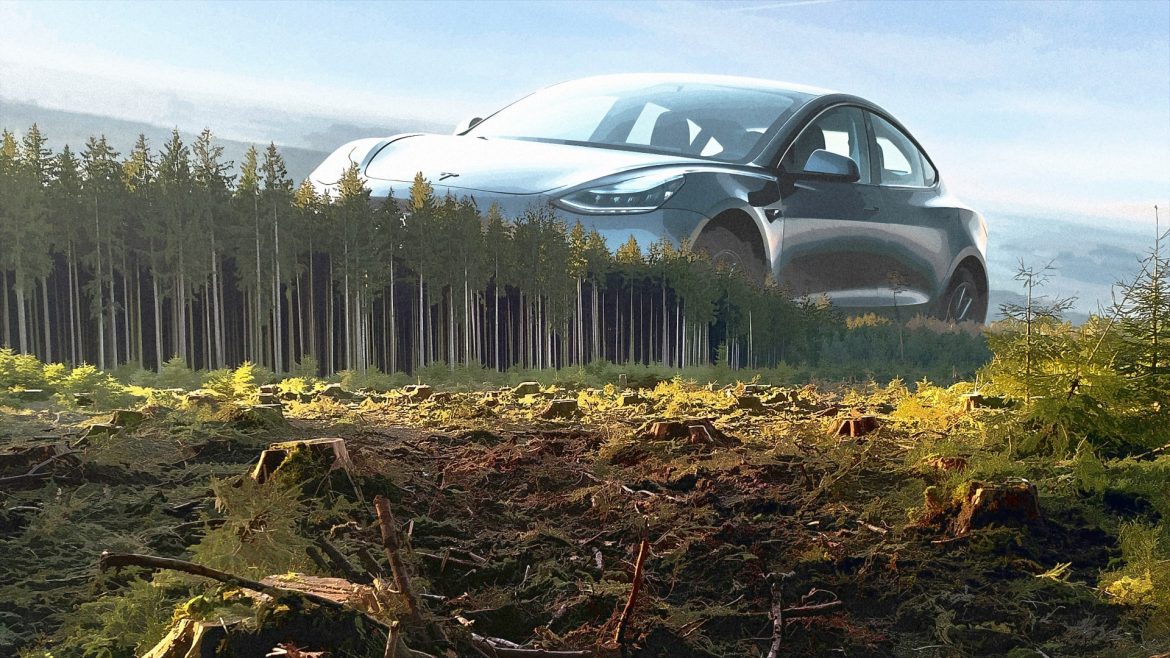Satellite analysis has shown that the development of a Tesla gigafactory near Berlin has resulted in about 500,000 trees being felled.
The building of the German factory has been highly controversial and attracted significant protests, as well as prompting a debate about the trade-offs involved in developing a green economy. Elon Musk, who owns Tesla, has criticised local police for letting off “leftwing protesters”.
But Satellite images show that 329 hectares (813 acres) of forest were cut down at the site between March 2020 and May 2023, according to the environmental intelligence company Kayrros. That is equivalent to approximately 500,000 trees.
Recall that since May, climate activists have protested against the planned expansion of the gigafactory, occupying tree houses in a nearby camp and attempting to storm the site. One group set fire to an electricity pylon and stopped the factory’s production for a few days in March.
Read also: Brazil deploys 1,500 firefighters to combat Amazon forest blazes
Karolina Drzewo, from the campaign alliance Turn Off Tesla’s Tap, said the analysis showed the company’s production of electric vehicles had caused local destruction of nature as well as global damage through mining for metals. “In one of the driest regions in Germany, too much of the environment has already been destroyed,” she said. “An expansion and thus even more destruction of forests and endangerment of the protected drinking water area must be prevented.”
Tesla did not respond to a request for comment.
Antoine Halff, the chief analyst at Kayrros, said: “The Tesla factory in Germany has led to quite a bit of cutting down of trees. Of course, it has to be put in perspective, against the benefit of replacing internal combustion engine cars with electric vehicles.”
Halff said the lost trees were equivalent to about 13,000 tonnes of CO2, the annual amount emitted by 2,800 average internal combustion engine cars in the US. “So that’s a fraction of the number of the electric cars that Tesla produces and sells every quarter,” he said. “You always have trade-offs, so you need to be aware of what the terms of the trade-off are.”
In July, a plan to expand the Tesla plant to double production to 1m cars a year was approved by Brandenburg state’s environment ministry.
Story was adapted from the Guardian.
